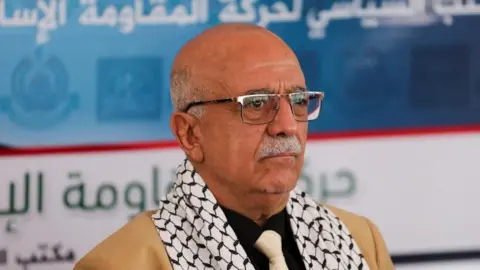Thailand's parliament has chosen business tycoon Anutin Charnvirakul as the country's prime minister - the third in two years, after yet another leader was removed from office.
Paetongtarn Shinawatra, who belongs to Thailand's most powerful political dynasty, was removed by the constitutional court last week for ethical violations over her handling of a border dispute with Cambodia.
Anutin's Bhumjaithai party broke from the coalition led by the Shinawatras' Pheu Thai, and secured enough support in parliament to win the premiership.
But the uncertainty may not be over for Thailand, which has seen multiple administrations deposed by court interventions and military coups in the recent past.
Anutin's rise to the premiership deals a significant blow to the Shinawatra family, which has dominated Thai politics since 2001, when Paetongtarn's father, Thaksin, became PM.
On Thursday night, there was intense scrutiny over a private jet carrying Thaksin out of the country. Early on Friday, he posted on social media stating he had flown to Dubai for medical treatment and plans to return for a court hearing that could send him back to jail.
His Pheu Thai party, previously a major player in the 2023 election, is now sidelined with only one remaining candidate for PM, Chaikasem Nitisiri, who lacks public profile and is in poor health.
The Shinawatras' populist policies have historically garnered support among lower-income Thais, but they have faced opposition from Bangkok's conservative-royalist elite.
Both Thaksin and his sister Yingluck were ousted from power by military coups in 2006 and 2014. Paetongtarn’s recent dismissal suggests the family's ongoing loss of favor with the political elite.
Paetongtarn was the fifth Thai prime minister removed by the Constitutional Court, all from her father's backed administrations, which creates an alarming pattern of political instability.
Anutin, 58, is a seasoned politician and dealmaker who has expressed ambitions for the top position but now faces a considerable challenge with limited political backing.
His Bhumjaithai party holds only 69 of the 500 parliamentary seats, meaning he must govern while aligning with one of the larger parties. Anutin's past alliances have been unideological, shifting between conservative factions and more progressive elements.
Notably, he is known for liberalizing Thailand's marijuana laws during his term as health minister. With mounting political restrictions and demands from supporting parties, Anutin’s challenge is to stabilize the government while navigating complex political waters.




















